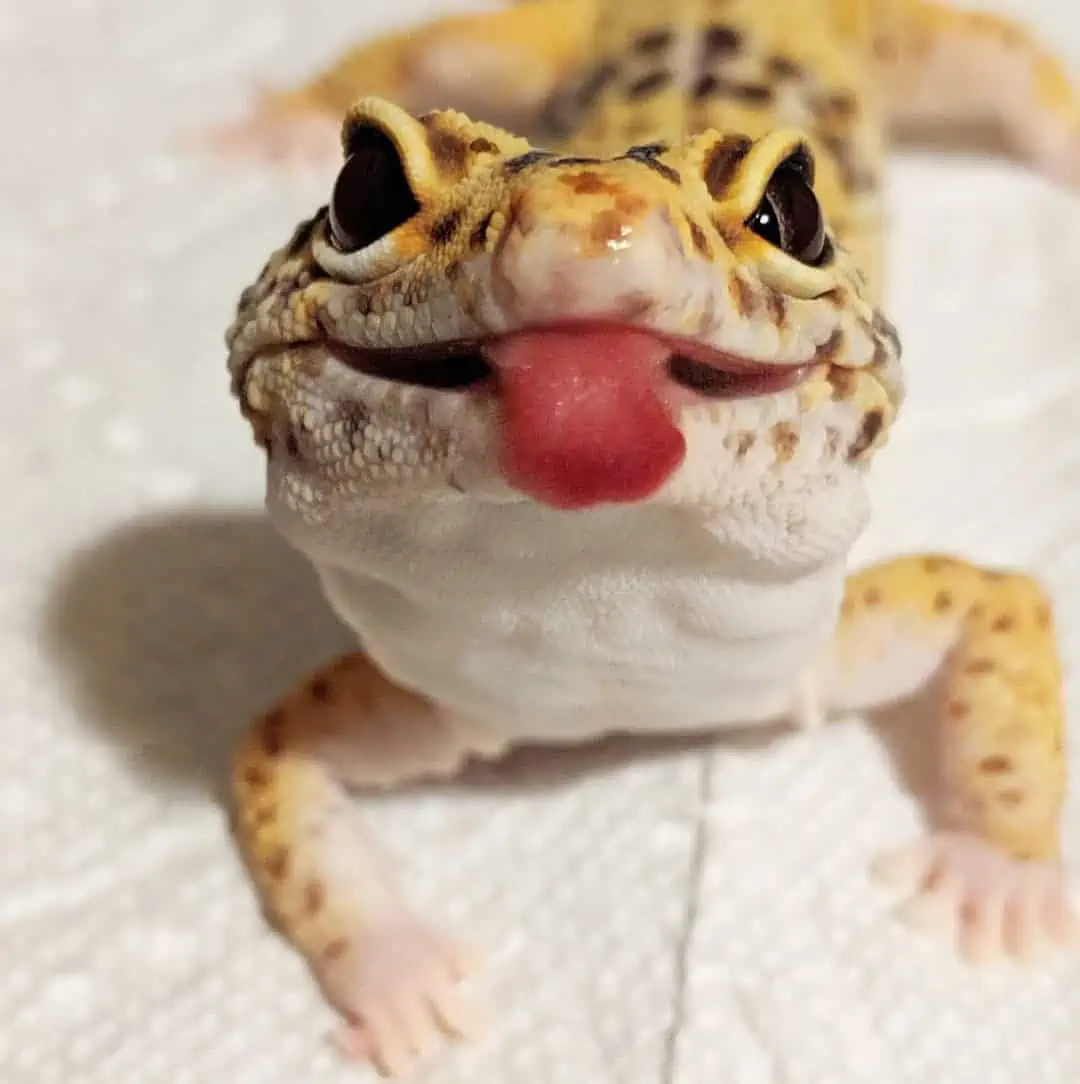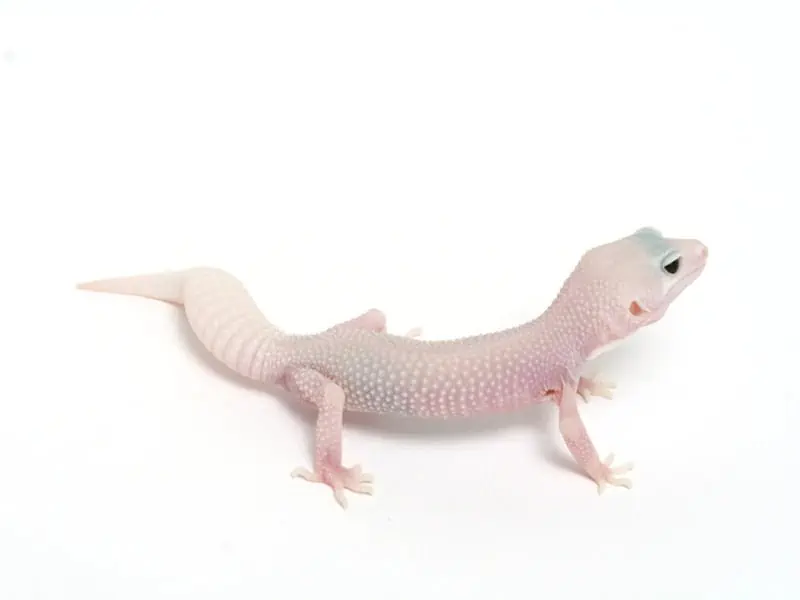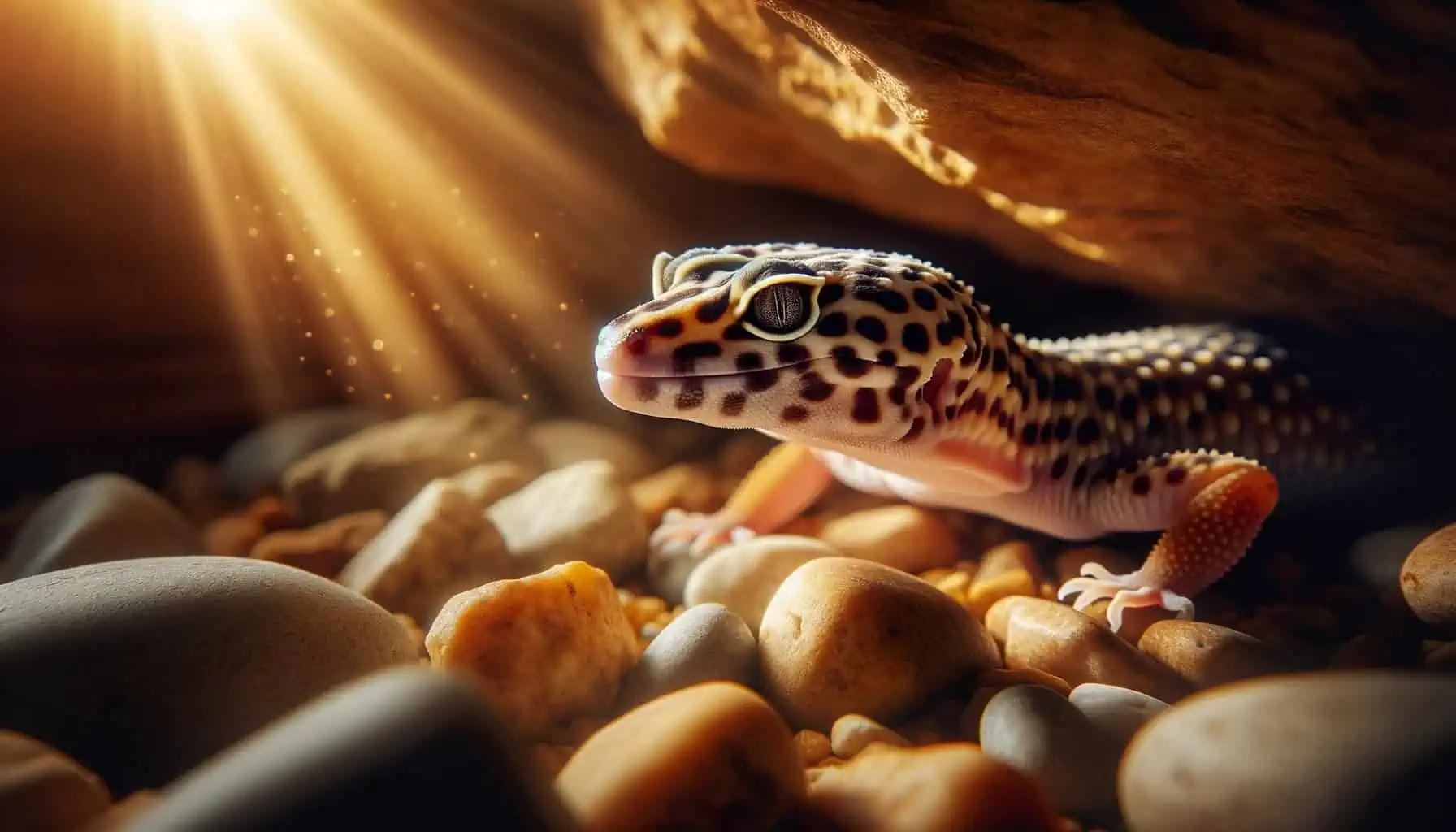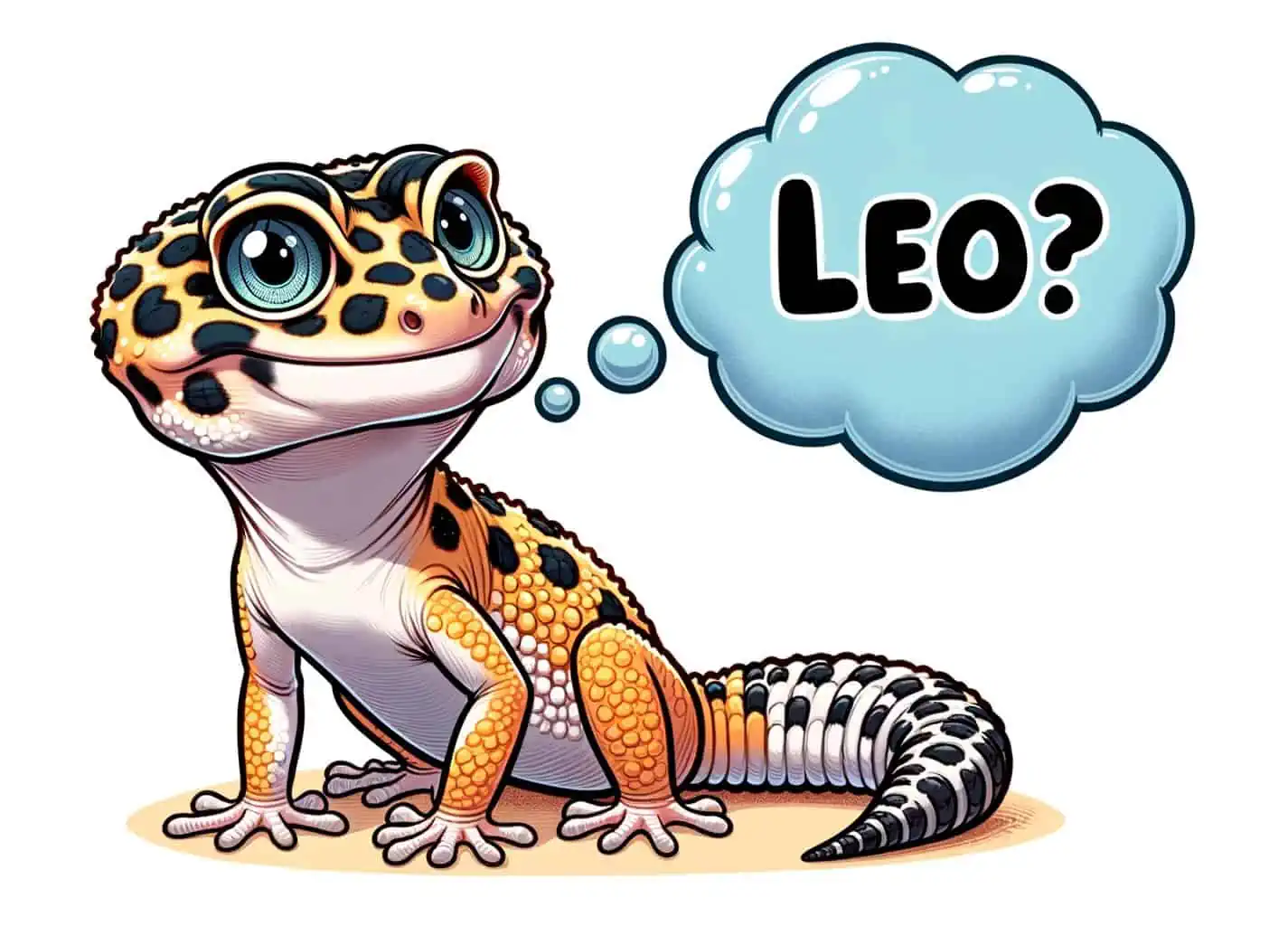When a leopard gecko licks you, it’s usually a sign of curiosity or familiarity, but it can convey a range of meanings, from positive affection and bonding to investigating you as a potential food source.
These intriguing creatures utilize their advanced olfactory senses to explore their environment, including their human caretakers.
As such, their lick can symbolize a connection, comfort, or mere inquiry into your scent or taste, aiding them in decoding the world around them.
Affection & Bonding: A leopard gecko licking you can indicate a sense of trust and comfort. It’s their way of showing positive affection and bonding, especially if they seem calm and seek physical contact during handling.
Exploration & Curiosity: These reptiles might lick to investigate potential food sources. This is often driven by their keen sense of smell, responding to scents like food residue, sweat, or hand lotion on your skin.
Understanding Their Senses: Leopard geckos utilize their vomeronasal organ, a specialized olfactory sense organ, to detect various scents. Licking helps them familiarize with different smells and tastes, sometimes marking you as part of their territory.
Diverse Licking Patterns: It’s essential to recognize the different types of licking, from cleaning their eyes to exploring various parts of your body. Observing these patterns helps decode their feelings and enhances understanding.
Body Language Matters: When paired with other actions, like tail wagging, licking can indicate excitement or agitation. Monitoring their overall body language ensures accurate interpretation and timely response.
What Does it Mean When a Leopard Gecko Licks You?
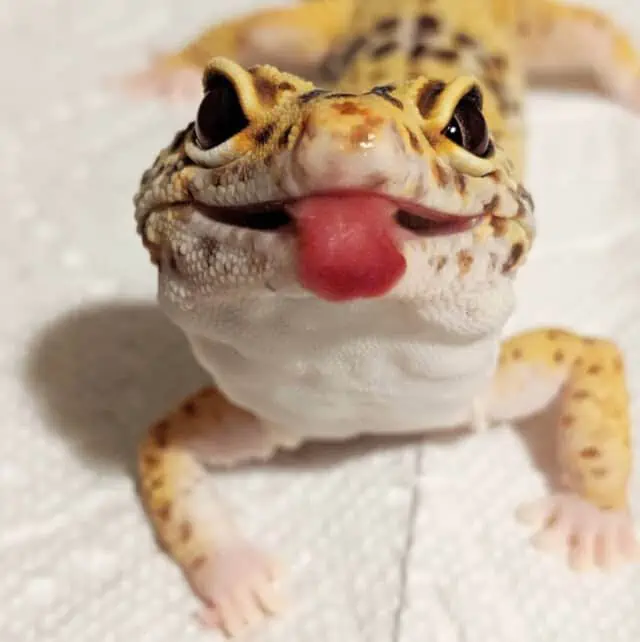
When a leopard gecko extends its tongue to lick you, it is usually an expression of curiosity or recognition. They could be displaying a form of bonding or affection, sensing your distinct smell, or even examining you as a possible source of food.
Each lick is a signal of their comfort and interaction with their owners, a reflection of their well-being, and their perception of their surroundings.
Positive Affection & Bonding
Leopard geckos often exhibit positive affection and bonding towards their owners, showcasing a level of trust and comfort. When they feel secure, they display behaviors indicative of a calm and relaxed demeanor while being handled.
It is not uncommon to see leopard geckos seeking physical contact and even following their owners around, showcasing their sociable nature.
This behavior, indicative of positive affection and bonding, suggests that the gecko perceives its owner as a companion, establishing a sense of security and trust within their relationship.
Their desire for physical contact, the pursuit of their owner’s presence, all point towards a relaxed and content state of being, portraying a harmonious interaction between the gecko and its caretaker (a leopard gecko biting could signal the opposite).
Investigating You as Potential Food Source
Leopard geckos might also lick you as part of their method of investigating you as a potential food source.
These reptiles possess a keen sense of smell, which is pivotal in their exploration and understanding of their environment, including deciphering whether something is edible or not.
A lingering scent of food on your skin can attract them, prompting an investigative lick.
Additionally, the taste of sweat or remnants of hand lotion can pique their interest, causing them to extend their tongues.
It’s their way of sampling the various tastes and smells encountered within their habitat, making them more familiar with their surroundings and their human caretakers.
Responding to Your Scent or Taste
Leopard geckos, with their refined senses, respond to your unique scent or taste by licking you. They are equipped with a specialized olfactory sense organ, known as the vomeronasal organ, which empowers them to detect and scrutinize different scents meticulously.
This organ plays a crucial role in their interactions with the environment and their owners, enabling them to discern distinct smells and tastes with precision.
By licking you, geckos aim to familiarize themselves with your specific scent or taste. This act serves a dual purpose: it allows them to identify you, and it could also be their way of marking you as a part of their territory.
This behavior, a combination of curiosity and acclimatization, is integral to their way of relating to their surroundings and establishing a sense of ownership and belonging.
Different Types of Licking You Might Experience
Leopard geckos exhibit a range of licking behaviors, each with its distinct implications. Recognizing and interpreting these actions can lead to a deeper, more nuanced understanding of your pet’s needs, preferences, and states of being.
One such behavior is eye licking. Leopard geckos may often be seen licking their eyes. This behavior is typically a cleaning mechanism, aiding in keeping their eyes free of debris and is essential for their well-being.
It usually does not convey any specific message to the owner but is rather a natural, self-maintaining action.
Another form is frequent licking, a behavior often observed when they are exploring their surroundings or encountering new objects, smells, or tastes. This can be a sign of curiosity and investigation as they experience new aspects of their environment.
It may also happen when they are attempting to familiarize themselves with their owner’s scent or taste, learning more about the people around them.
Licking specific parts of your body can also occur. This can be interpreted as the gecko exploring different scents and tastes found on various parts of the human body, each providing a unique palette of information for them to process.
It is essential to observe and understand this behavior as it can indicate their level of comfort and interest in their human companions.
Lastly, if you observe your gecko licking coupled with wagging their tail, it may signify excitement or agitation.
It is crucial to monitor their overall body language in such instances to ensure a proper understanding of their emotional state and respond appropriately to their needs.

